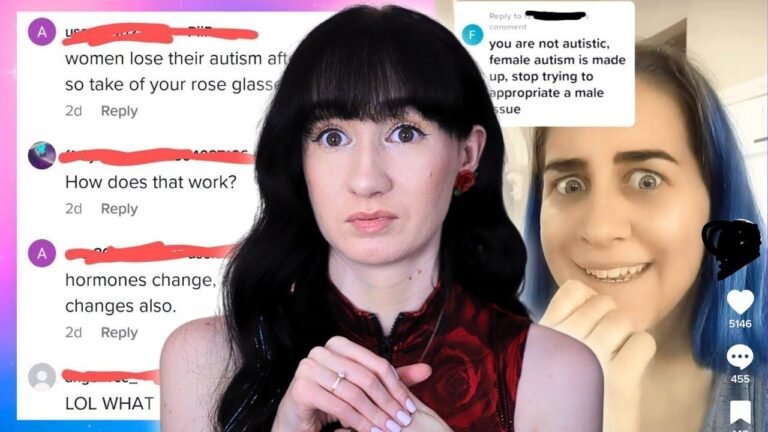Title: Coping with Online Hostility: Social Media Struggles for Autism and Autistic Communities
It’s a battleground out there! Hate comments and misinformation are the villains in our social media saga. Autistic advocates face a barrage of negativity daily, but we’re not backing down. Let’s turn the tide by rallying support, bridging gaps, and finding common ground. Together, we’ll drown out the trolls and build a brighter future for the autistic community. 💪🌟
In today’s episode of Talking about Autism, we delve into the complex world of social media challenges faced by the autism and autistic communities. As the Director of Social Speaks, I bring a unique perspective to the table, aiming not only to shed light on our organization’s work but also to provide broader insights as a published author, influencer, and autistic individual. Joining me today is GW, an autistic self-advocate, TikTok influencer, and entrepreneur. Together, we confront the prevalence of hate comments and misinformation plaguing our online platforms.
🛑 The Impact of Negative Comments
Negative comments on social media platforms not only affect individuals’ mental health but also pose significant challenges for organizations like ours. These comments hinder fundraising efforts and perpetuate misinformation within the autistic community. It’s crucial to address these issues head-on to foster a supportive online environment.
| Negative Comments Received |
|---|
| "I knew a girl with autism who could fly and ended up in the hospital after she jumped out of a window." |
| "How did bro make autism his entire personality?" |
| "If he never said he’s autistic on his TikTok account, bro would have no followers." |
| "Acoustic and autistic are two different things; just because they rhyme doesn’t make them interchangeable." |
| "Every single video you make is about autism; nobody cares." |
| "Who cares about autism, bro? Do something else." |
🤔 Understanding the Motivation Behind Hate Comments
Hate comments often stem from ignorance and misinformation. Trolls and critics, whether from within or outside the autistic community, spread harmful messages without considering the impact of their words. It’s essential to recognize their motives, however illogical they may seem, to effectively combat their harmful influence.
| Examples of Hate Comments |
|---|
| "I hope you don’t wake up tomorrow." |
| "You’re a terrible organization; end it." |
| "Kill yourself; you have no reason to live." |
| "Jump out of the window yourself; don’t be autistic." |
| "Your campaign is horrible; autism isn’t a disease." |
💡 Responding to Hate: A Call for Unity
As advocates for autism awareness and acceptance, it’s imperative that we rise above hate and division. While ignoring trolls is necessary, we must also engage with our supportive community to bridge the gap and foster understanding. By amplifying positive voices and promoting productive dialogue, we can combat misinformation and create a more inclusive online space.
🔍 Seeking Common Ground
Despite differing opinions and perspectives, our ultimate goal remains the same: to advocate for the rights and well-being of autistic individuals. By finding common ground and working collaboratively, we can address misconceptions, promote acceptance, and ensure that our voices are heard.
Conclusion
In conclusion, navigating social media challenges as part of the autism and autistic communities requires resilience, understanding, and unity. By confronting hate comments and misinformation head-on, while fostering constructive dialogue and collaboration, we can create a more supportive and inclusive online environment for all.
Key Takeaways:
- Hate comments and misinformation pose significant challenges for the autism and autistic communities.
- Understanding the motivations behind hate comments is essential to effectively combatting their harmful influence.
- Responding with unity and positivity can help bridge the gap and promote understanding within and beyond the autistic community.
FAQ:
- Q: How can individuals combat hate comments on social media?
- A: Ignoring trolls while engaging with supportive communities and promoting positive dialogue is key.
- Q: What can organizations do to address misinformation?
- A: Organizations should prioritize educating their audience and fostering open communication to dispel myths and promote accurate information.







